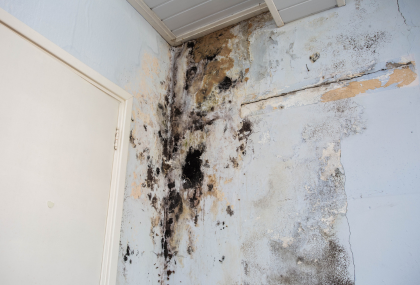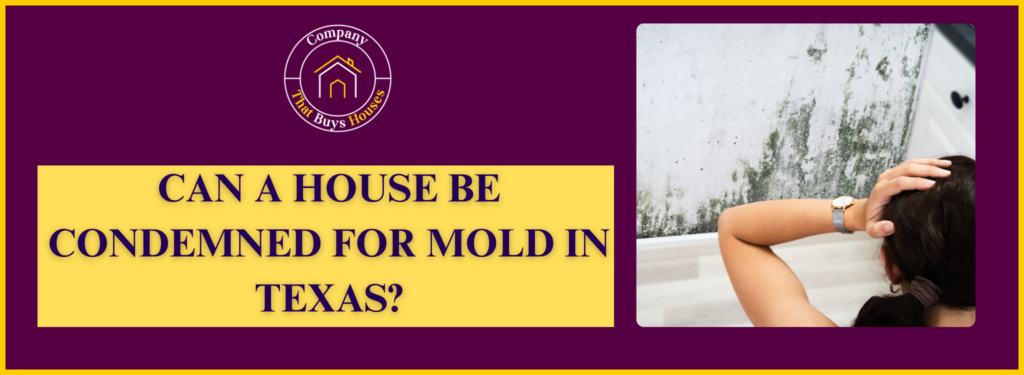
Understanding Mold in Texas Homes: Causes and Prevention
Many homes in Texas have problems with mold. Because Texas is warm and humid, mold is easier to grow and spread to homes and businesses there. Mold often grows in Texas homes with too much water, water damage, or leaks. Mold spores can proliferate in these places. Mold not only damages your home, but it can also be bad for your health.
Texas homeowners should know what causes mold so that their houses are safe and healthy. Mold problems can hurt property and make health risks worse, especially for people with asthma or allergies. To stop mold from growing and keep your home’s value high, ensure there is enough air flow, get rid of the mold quickly, and fix the problem.
What causes mold to grow in Texas homes most of the time?
In Texas, mold problems are usually caused by problems with water:
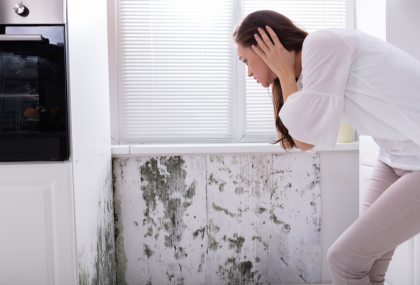
Floods and leaks from broken pipes or roofs let water into walls and floors, which lets mold grow.
Buildup of moisture: If you don’t have enough air flow, high room humidity can make places that are damp and moldy where people in Texas live.
Leaks: Leaks in the plumbing or roof can leave behind damp areas that mold can grow in Texas.
Homes in Texas often flood during storms, which damages them and lets mold grow.
Poor ventilation: Not enough airflow keeps moisture inside, which makes it more likely that mold will grow on walls, ceilings, and other surfaces.
Homeowners should check for water damage often and quickly fix any leaks they find. Getting rid of mold quickly saves money and lowers health risks.
What types of mold grow most often in Texas?
Homes in Texas often have the following types of mold:
- Cladosporium: This mold grows greatly in Texas and can be found on wood and rugs.
- You can find aspergillus both inside and outside. Some kinds can cause allergies or infections.
- Penicillium grows on things like wallpaper and insulation that water has destroyed.
- Black mold, Stachybotrys, is less common but grows in damp places and can be very bad for your health.
Regular inspections and proper mold removal help keep Texas houses from getting moldy. Professional mold removal takes clear steps to get rid of different kinds of mold safely and make the home safe again.
How does Texas’ climate contribute to mold growth?
The weather in Texas makes it easier for mold to grow and cause problems in homes all over the state. Because of the constant high humidity, the air inside is often damp, perfect for mold to grow. Also, mold spores grow faster when wetness is in the air most of the year because of the warm weather.
Storms and floods often make it more likely that water will damage things, leak, and cause mold to grow. Many homes don’t have enough airflow, which keeps humid air inside and causes mold to grow over time. Texas homeowners should control the amount of moisture in the air and improve ventilation to keep their homes healthy. Fixing leaks right away and using dehumidifiers are good ways to stop mold growth and protect your health and property.
What are the early warning signs of mold problems?
Finding mold problems early on in Texas homes is important to keep people healthy and keep buildings from falling apart. A musty smell, which is sometimes called a strong mildew or earthy smell, is one of the most common signs of mold poisoning. Mold spots that can be seen on walls, ceilings, or furniture as black, green, or white spots are another clear sign.
Water stains or discoloration, especially in places where there have been leaks or water damage, may also be a sign of secret mold growth. Paint that is peeling off may also be present. Mold may also be present in the home if you have health problems like sneezing, coughing, or skin complaints. If a homeowner sees these signs, they should do a full inspection and move right away. Quick removal and repair of mold is necessary to keep the living space safe and stop more damage to the property.
How can I prevent mold growth in my Texas home?
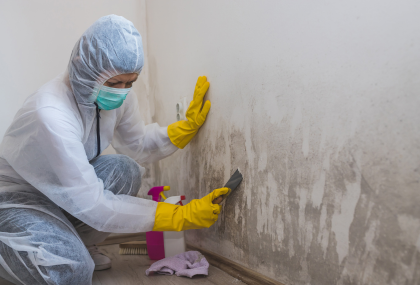
Controlling moisture and having good air flow are important for keeping mold away:
- Fix leaks quickly: Fix any leaks in the roof, pipes, or windows right away.
- Use exhaust fans in the kitchen and bathroom and open the windows when possible to let more air flow.
- Control humidity: Use air coolers or dehumidifiers to keep the humidity inside below 60%.
- Fast drying: Dry the area in 24 to 48 hours after storms or spills.
- Check often: Regularly check for water damage, mold, and no air flow.
These steps help keep homes in Texas healthy and reduce the need to remove or fix mold. If mold is found, it can be treated safely and effectively by a professional mold removal service.
Landlord Responsibilities and Tenant Rights Regarding Mold
Mold in rental homes is a big problem for both landlords and renters. It is essential to know what renters can do about mold and what landlords must do, especially regarding Texas housing laws and mold rules. This section discusses what landlords should do about mold and what renters can do to keep their homes safe and healthy.
What are a landlord’s legal obligations concerning mold in Texas rental properties?
In Texas, landlords are expected by law to provide safe, livable housing. This includes fixing mold problems that are bad for tenants’ health. They have to check and manage properties to keep mold away, tell others about known mold problems when asked, and get rid of any mold found immediately. Landlords can be made because they didn’t address the mold problems. Tenants can ask their landlords to fix things and can go to court if they don’t. In tough cases, talking to a renter lawyer can help.
When is a landlord required to conduct mold remediation?
When mold is a health risk or violates the lease or local housing rules, landlords have to get rid of it. Some important points are:
- Health risks: If you see mold or think mold is making you sick, you need to take action right away.
- Agreements to rent: A lot of leases say that owners have to fix problems like mold.
- Legal time frame: Texas housing rules say that landlords have to deal with mold within a reasonable amount of time after being told about it.
In an emergency, landlords must move right away if mold poses a direct threat to the safety of their tenants.
If renters don’t get rid of mold, they could be fined because they broke the law.
What are my rights as a tenant if my landlord refuses to address mold?
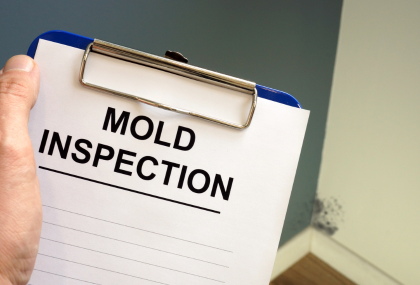
You can use the law to protect your health and home if your owner won’t fix mold problems. You can ask for repairs that are needed to make sure the living conditions are safe, and if they are not made, you can report the problem to the housing officials or go to court. Also, landlords can’t legally kick you out of the apartment for asking for mold fixes. Talk to a tenant lawyer for advice, and look for help from non-profits or renter advocacy groups that deal with mold-related issues.
What steps should a tenant take if they discover mold in their rental?
Follow these steps to protect yourself and your rights if you find mold in your home. Send your landlord a written warning right away, explaining the mold problem and asking for an inspection and repairs. Take pictures and save all of your messages to keep track of everything. Get a professional to look at the mold to see how bad the problem is.
Read your lease and the housing rules in Texas to know what rights you have. If your landlord doesn’t answer, send an official letter demanding that the mold be taken care of. For extra help, ask for help from tenant protection groups or non-profits. If the mold is putting your health at risk right away, you should call the authorities. Lastly, if the problem still hasn’t been fixed, talk to a tenant lawyer for legal help. These steps help keep you safe and defend your legal rights. If you are thinking whether you can sell your house with mold, then yes. We buy houses in Dallas, Lewisville, Irving, Arlington, and all over Texas & make the process as simple and fast as possible for sellers. You can read our reviews and also find out about the process of how we buy houses.
Can I deduct mold remediation costs from rent? Under what circumstances?
In Texas, there are certain situations where renters can deduct the cost of mold removal from their rent. This usually happens when the mold was caused by the tenant’s carelessness or when the landlord doesn’t fix the problem within an acceptable amount of time after being told about it.
Tenants should always talk to a lawyer before not paying rent or removing mold to avoid legal problems or being kicked out. It is important to keep all papers and records of how much it cost to fix the problem. You should also write to the landlord to let them know about the problem and any planned deductions.
Assessing Mold Severity and Associated Health Risks

Mold growth in Texas homes is very bad for your health and damages the property. Homeowners, renters, and inmates need to know how bad mold growth is to keep everyone safe and follow the law. If mold damage puts people’s health or the building’s foundation at risk, it needs to be fixed. The mold will be removed properly and safely if you hire a reputable company.
Experts determine the extent of mold by examining the amount of mold, any water damage, and any dangers that could hurt the people who live there. If mold problems are not addressed immediately, they can lead to expensive court issues and insurance claims. However, if they are addressed quickly, they can lower the risks and long-term damage from mold, whether it’s an emergency or a long-term problem.
What constitutes a significant mold infestation requiring professional help?
When you usually need professional help with a mold problem:
- There is mold on more than 10 square feet.
- There is still water damage from leaks or floods.
- Mold is bad for the health of the people who live there.
- Some parts of the building are getting weaker or falling apart.
- Mold is hidden in vents, walls, and other places that are hard to see.
- The house is rented, and the tenant’s rights require that it be cleaned up properly.
- We need to act right away to avoid more damage or legal problems.
- Insurance companies want to see official records on the mold inspection and cleanup.
To safely get rid of mold, you need to hire a reputable mold removal company. Mold can be seen and secret spots can be cleaned by professionals using special tools and methods that protect both health and property value.
What are the health risks associated with mold exposure?
Mold can be bad for your health in many ways, especially if you are sensitive or have trouble breathing, like renters, tenants, or landlords. Some common health risks are:
- Allergies cause things like coughing, stuffy nose, and irritated skin.
- Having trouble breathing, like asthma attacks and coughing all the time.
- Infections or getting worse lung problems that are already there.
- Headaches, being tired, and other signs of a general sickness.
Mold in Texas homes and rented units is dangerous for everyone there. If you know about these health risks early on, you can avoid long-term exposure and take legal action if necessary.
How do inspectors assess mold damage?
These steps are what inspectors use to look for mold damage:
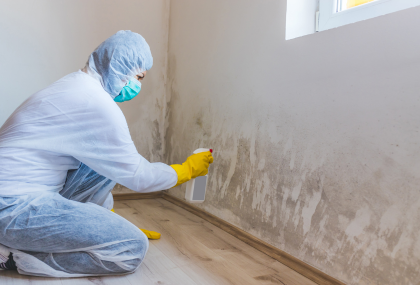
Take a look around and look for mold and signs of water damage.
Testing for moisture: Use tools to find places that are wet.
Air Tests: Look for mold spores in the air to find mold that is hidden.
Tests on the Surface: Pull samples from moldy areas to test in the lab.
Check the structure to see if any parts of the building are broken or not safe.
Risk Review: Figure out how dangerous the mold is for people living in the area.
Report Writing: Write an in-depth report with data and tips on how to clean up.
What are the typical costs of mold remediation in Texas?
How much it costs to get rid of mold depends on how bad the problem is and how big the affected area is. The size of the moldy area mostly determines the cost, the amount of water damage and contamination, where the mold is located (hard-to-reach areas cost more), the type of mold that is there, the repairs that need to be done after the mold is cleaned up, and whether emergency services are needed, which can raise the cost.
In Texas, the price to get rid of an infestation usually ranges from $500 for small jobs to several thousand dollars for bigger ones. If the damage is caused by an insured event, like a leak or a storm, your insurance may pay for some or all of the costs. Both renters and landlords should get quotes from professional remediation companies and look into financial aid options if they need it.
Legal Ramifications of Mold Issues in Texas
Mold contamination in Texas homes and rental properties can cause serious health problems and legal challenges. Knowing the Texas mold laws and legal responsibilities helps landlords and tenants handle mold problems properly. This section explains important legal points, like property condemnation, tenant rights, landlord duties, penalties for breaking rules, and disclosure rules in real estate deals.
Can a house be condemned due to mold infestation?
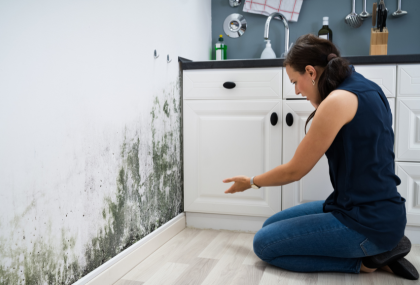
If mold in a house in Texas causes major health risks or damage to the structure, making it unsafe to live in, the house can be taken away. This happens when local officials decide that the property doesn’t follow housing rules or is dangerous to the public’s health. Usually, a building is condemned after an inspection finds major health and safety risks, mold damage to the structure, or breaking of local building laws.
In these situations, emergency or public health agencies may step in, and sometimes eminent domain acts are used to keep the community safe. People who live in a house that has been condemned may have to leave until the mold is properly removed. Homeowners, landlords, and tenants should all work with the police during inspections and follow all safety rules.
What legal recourse do tenants have if a landlord fails to address mold?
People who rent in Texas have the right to safe, livable living, which includes being safe from mold. Leasing companies can be sued in a number of ways if they don’t fix mold issues.
First, they should send a formal demand letter citing their lease and Texas housing rules and requesting repairs. Tenants can legally not pay their rent after giving the landlord enough notice, as long as they take the right legal steps to avoid being evicted. Tenants can also tell the local housing or health officials when they think their living conditions are unsafe.
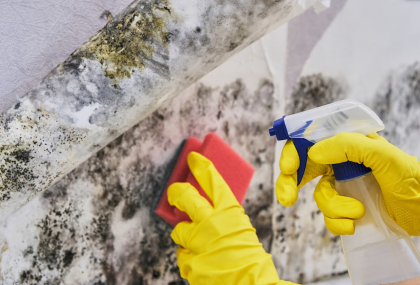
If the problem is still not solved, getting help from a tenant lawyer can give you choices for going to court or coming to an agreement. Texas housing rules say landlords must keep their properties safe and free of mold. Tenants should read their leases to know their rights when it comes to repairs and staying in the house after being evicted.
What legal avenues are available to landlords facing mold-related lawsuits?
Texas landlords who are being sued for mold problems need to know what the law says about them and how much they could be responsible. They can be held responsible if mold grows because they didn’t take care of problems or ignored them. A lot of people use insurance to pay for cleanup costs, but different plans cover different things, so it’s important to read them all.
Hiring an experienced lawyer helps landlords follow the law and prepare for court or settlement talks. Meditating or reaching a settlement can also avoid long court fights.
Regular checks and quick mold removal lower legal risks and improve relations between landlords and tenants. Talking to a good lawyer is important for protecting your financial interests and following the law in Texas.
